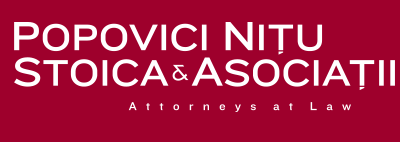- About Us
-
Expertise
- Banking & Finance
- Capital Markets
- Competition & Antitrust
- Corporate & Commercial
- Data Privacy
- Employment & Pensions
- Energy & Natural Resources
- Gambling & Betting
- Healthcare & Pharmaceuticals
- Insurance
- Intellectual Property
- International Arbitration
- Litigation
- Mergers & Acquisitions
- Project Finance/PPP, Concessions & Infrastructure
- Public Procurement
- Real Estate
- Restructuring & Insolvency
- Sports Law
- Tax
- Telecommunications, Media & Technology
- Transports & Logistics
- White Collar Compliance & Defense
- Our team
- Careers
- Publications
- News and Press
- Contact
Articles
Transfer of undertaking
Aiming at safeguarding the employees’ rights in case of collective transfer to another employer, the rules applicable to the transfer of undertaking are scarcely provided by the Romanian laws, as mere principles, namely by art. 169 - 170 of the Labour Code that came into force as of March 1st 2003.
Pursuant to art. 169 par. 1 of the Labour Code, the employees’ rights are safeguarded in case of transfer of (i) undertakings, (ii) businesses or (iii) parts thereof. The Labour Code sets forth that the transfer shall be made in favour of a new employer, without further mentions with respect to the nature of the legal instrument under which the respective transfer is performed or with respect to the definition of the entity to be transferred (i.e. undertaking, business, respectively parts thereof).
At the same time, art. 170 of the Labour Code seems to make a connection between the transfer of undertaking and the transfer of the ownership right. The article above lays down that the former and the new employer are held to inform and consult, prior to the transfer, the trade union or, as the case may be, the employees’ representatives on the legal, economic and social effects deriving from the transfer of the ownership right.
However, the conclusion which seems to be inferred from the joint reading of the said legal texts is only partially upheld by the Directive 2001/23/EC (whose principles served as basis for the corresponding legal framework), which governs in the E.U. the safeguarding of the employees’ rights in case of transfer of undertakings.
A first remark in this respect arises out of art. 1 of the said directive. This defines the transfer of undertaking as the transfer of an economic entity which retains its identity and which has the objective of pursuing an economic activity, as a result of a legal transfer performed under the laws of each country.
A second remark regards certain additional criteria extracted from the jurisprudence of the European Court of Justice aiming to qualify the transfers of undertaking. According to the court’s practice, the operations characterised by (i) the new employer’s need to take over certain assets of the transferred entity so as to enable the latter to remain operational (asset-reliant service), or (ii) the need to take over the personnel of the transferred entity, for the same reasons as above (labour-intensive undertakings) may be treated as transfers of undertakings.
On the basis of such criteria, various situations, such as the changeover of the service provider within service agreements or the activities outsourcing were deemed as transfer of undertaking. Apart from these cases, the mere transfer of ownership over a company’s shares would not suffice to determine the application of the rules governing the transfer of undertaking.
Reverting to the Romanian Labour Code, it should be noted that, according to art. 169 par. 2, the rights and obligations of the former employer under an agreement or a labour relationship existing at the date of the transfer are fully incumbent on the new employer.
Moreover, according to art. 169 par. 3, the transfer of undertakings, of businesses or of parts thereof may not in itself constitute grounds for individual or collective dismissals by the transferor or the transferee. In this context, mention should be made that the law does not provide for the period during which the employees are protected before and after the respective transfer, period during which the employer would be restricted to operate dismissals, possibility which would be normally usable in line with the general rules of the Labour Code.
Another ambiguity is originated by art. 170 (above-mentioned) of the Labour Code which regards the obligation of the former and of the new employer to inform the trade union, respectively the employees’ representatives. The Code expressly provides this obligation in case of transfer of ownership and seems to exclude it in all other cases, in which without having transfer of ownership, the transfer of undertaking rules may be still applicable.
As indicated by our brief review of the relevant Romanian framework, the principles applicable to the transfer of undertaking need further approach, in a coherent manner, by the lawmaker and by the practitioners, in compliance with the European legislation and jurisprudence developments.










